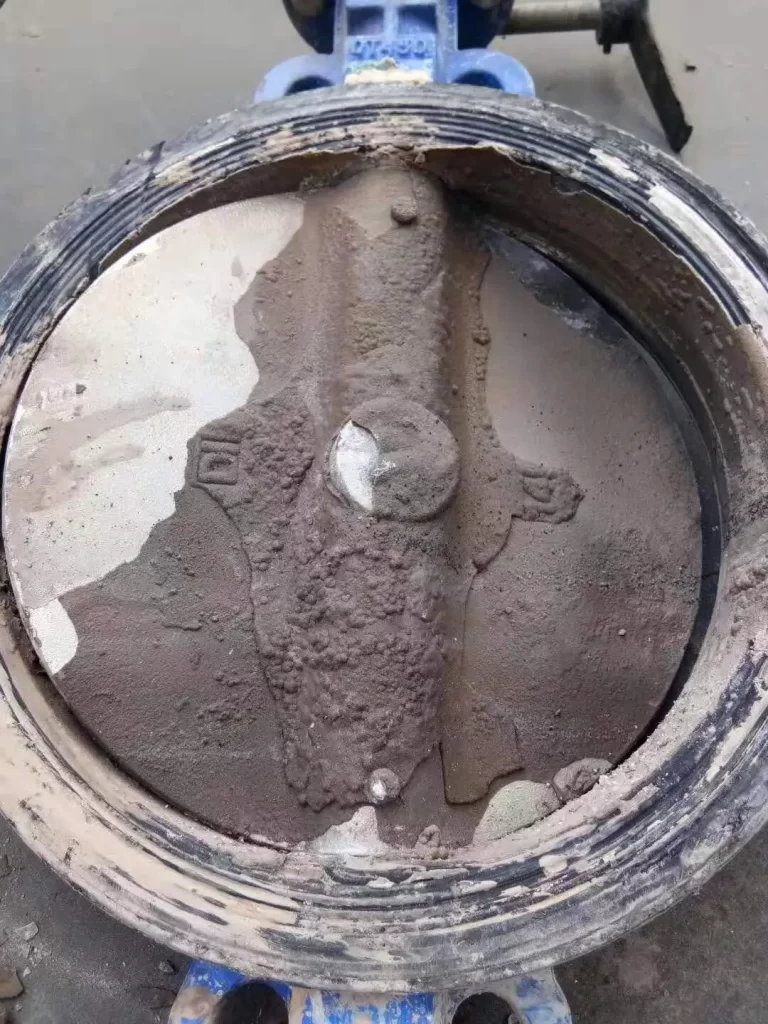How to Prevent Scaling on Gate Valves with Protective Coatings
Introduction
There may be blockage or fouling inside the flow channel of the valve, resulting in unblocked fluids, seal failure, and increased maintenance costs. The use of coating anti-structure technology can effectively reduce the blockage and fouling of the valve. Coating anti-scaling technology refers to covering the surface of hydrophilic metal substrate with a layer of anti-fouling protective coating material, which reduces/reduces the probability of fouling and scaling adhesion from the source, and has the advantages of engineering applications such as easy operation, low cost, green environmental protection and non-interrupted production, showing potential application prospects. This article details the causes of valve fouling, the coating mechanism, and the solution.

Causes of Scaling in Gate Valves
Water quality factors: because the water in the pipeline contains a large amount of calcium, magnesium and other ions, with the evaporation of water molecules, white scale will be formed and deposited on the surface of the valve l
Medium characteristics: high temperature and high pressure environment accelerates deposition, such as mineral precipitation in steam pipelines.
Flow Rates & Pressures: Low flow rates or unstable flow lead to the deposition of solid particles.
Material influence: Some metals are susceptible to chemical reactions with media to form corrosive deposits.
Mechanism of Protective Coatings
Protective coating can effectively reduce dirt adhesion and form a smooth surface. It also repels moisture, oxygen and chemicals to reduce corrosive fouling. Colleague protective coatings can withstand high temperatures and pressures, ensuring that the coating does not fail under extreme working conditions. Colleague Some coatings can automatically shed dirt by water flow or mechanical vibration.
Types of Coatings for Preventing Scaling
PTFE coating: characterized by high corrosion resistance, it is more common in the chemical and food industries. l
Ceramic coating: It has high wear resistance and high temperature resistance, and is suitable for high temperature fluid transportation. l
Epoxy resin coating: This coating has strong anti-corrosion performance and is suitable for water treatment and petrochemical pipelines. l
Plasma spraying: It is to form a dense protective layer on the metal surface, which can improve the anti-scaling performance. Self-cleaning coating: Nanotechnology is used to make the surface superhydrophobic and prevent the adhesion of dirt.
Analysis of Causes of Scaling in Gate Valves
Valve fouling is usually due to the large amount of calcium and magnesium plasma contained in the water in the pipeline, and as the water molecules evaporate, white scale will be formed and deposited on the surface of the valve. At the same time, sediment, rust, etc. in the water can also cause the valve to scale. The metal of the thermal power plant of the power plant is often in contact with the water, and the water quality has a great influence on the related equipment, once the impurity content in the water is larger, and after purification treatment, then the power equipment will appear to scale, salt accumulation, corrosion and other conditions, and the salt accumulation in the superheater tube will cause the overheating of the metal pipe wall and burst the pipe; If the valve is not closed tightly due to salt accumulation, the safety of the operation of the equipment cannot be guaranteed, and the service life will be shortened External environmental factors also have a significant impact on fouling. For example. The temperature, humidity of the operating environment, and the nature of the surrounding medium can all affect the chemical reactions and physical processes of the medium.
Professional Strategies to Prevent Gate Valve Scaling
Optimize water quality management: The use of softened water and chemical antiscalants can effectively prevent scaling.
Regular cleaning and maintenance: regular maintenance by ultrasonic cleaning, pickling, mechanical cleaning and other methods l
Optimize valve material selection: choose materials such as stainless steel and alloy steel to reduce scaling to a certain extent.
Coating pre-treatment: Improving the adhesion of the coating ensures long-term protection.
Professional Solutions to Solve the Scaling Problem of Gate Valves
Physical removal method: use high-pressure water washing, mechanical scraping and other methods to remove the existing scale.
Chemical cleaning method: use acidic solutions, chelating agents, etc. to remove sediments. l
Coating repair and recoating: Timely maintenance should be carried out after the coating is worn to prolong the life of the coating. l
Intelligent monitoring system: use flow monitoring, pressure sensor, etc. to warn of fouling in advance.
Conclusion
Fouling of gate valves can cause poor sealing, resulting in leakage that not only leads to the loss of media, but also can cause serious consequences such as fire, explosion, and environmental pollution. Especially in high-temperature and high-pressure environments, the risk of leakage is greater. In addition, long-term leaks can lead to corrosion and damage to equipment, increasing repair costs. Therefore, the application of coating technology to valves is crucial. Different working conditions should be reasonable material selection, choose appropriate coating technology and reasonable and standardized operation and maintenance strategies, aiming to reduce the scaling and corrosion damage of valves through comprehensive measures, ensure the stable operation of equipment, and improve the production efficiency of enterprises.
